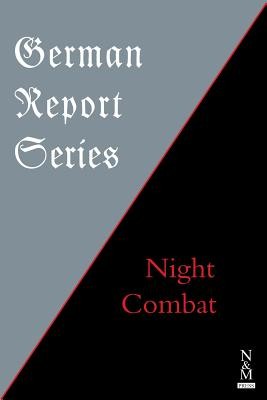
- We will send in 10–14 business days.
- Author: Anon
- Publisher: Naval & Military Press
- ISBN-10: 1783314087
- ISBN-13: 9781783314089
- Format: 15.2 x 22.9 x 0.4 cm, minkšti viršeliai
- Language: English
- SAVE -10% with code: EXTRA
Reviews
Description
The reader of a pre-war German Army operation manual, upon reaching to the chapter heading "Night Combat", found that the subject was covered very succinctly and somewhat superficially. The content failed to reveal the tremendous importance that night combat and night movements were to assume in modern warfare.
During two world wars, night and other periods of poor visibility, such as fog and snowstorms or rainstorms, gradually came to be considered the ideal time for action. Interference from the air reduces fighting and paralysed movements in daylight hours, with the result that the space between the front and the most remote corner of the rear areas was often empty and deserted. During the hours of darkness combat and movements resumed with new intensity. After a while, the German soldier considered this mole like existence as normal, but the conclusion that should have been drawn from this undeniable fact was that the setting up training schedules was completely inadequate.
In Russia more and more action occurred at night. Once this was widely recognised during the later years of war, much of the individual unit training took time during darkness and other periods of poor visibility.
The material for this pamphlet was prepared for the Historical Division, EUCOM, by a group of former German generals and general staff officers. The principal author, former Brig. Gen. Alfred Toppe, and most of his associates served for extended periods on the Russian Front during World War II. Moreover, most of them held assignments involving troop training.
- Author: Anon
- Publisher: Naval & Military Press
- ISBN-10: 1783314087
- ISBN-13: 9781783314089
- Format: 15.2 x 22.9 x 0.4 cm, minkšti viršeliai
- Language: English English
The reader of a pre-war German Army operation manual, upon reaching to the chapter heading "Night Combat", found that the subject was covered very succinctly and somewhat superficially. The content failed to reveal the tremendous importance that night combat and night movements were to assume in modern warfare.
During two world wars, night and other periods of poor visibility, such as fog and snowstorms or rainstorms, gradually came to be considered the ideal time for action. Interference from the air reduces fighting and paralysed movements in daylight hours, with the result that the space between the front and the most remote corner of the rear areas was often empty and deserted. During the hours of darkness combat and movements resumed with new intensity. After a while, the German soldier considered this mole like existence as normal, but the conclusion that should have been drawn from this undeniable fact was that the setting up training schedules was completely inadequate.
In Russia more and more action occurred at night. Once this was widely recognised during the later years of war, much of the individual unit training took time during darkness and other periods of poor visibility.
The material for this pamphlet was prepared for the Historical Division, EUCOM, by a group of former German generals and general staff officers. The principal author, former Brig. Gen. Alfred Toppe, and most of his associates served for extended periods on the Russian Front during World War II. Moreover, most of them held assignments involving troop training.


Reviews